Note: Edited after publication to correct Paxton to Patrick and uncompetitive in the headwinds paragraph.
Now that the primary is over the spin cycle is running full force. This year’s election was one of the ugliest intraparty slug-fests that has been recorded. In the end, not only are we all worse off for the ugliness, but the analysis that is being generated is tainted by the side picking and entrenched positions. To that end, this post will give the raw charts first so it’s free to see absent analysis, and separately opine as to the significance of the data.
The Data
In order to draw conclusions the charts below show 2018 and 2014 vote counts, and since the numbers aren’t really comparable the undervotes for the selected races since that’s a comparable figure. The democrats didn’t have a contested Lt. Governor race in 2014 the undervote change was not charted for that race. Senator, Governor, and Lt. Governor were used for top of the ballot assessment, and the most and least competitive district court races were used, regardless of district, for bottom of the ballot analysis.
2018 data:
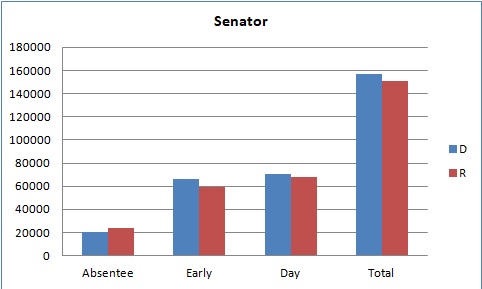
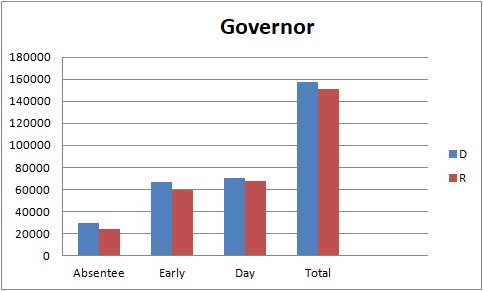
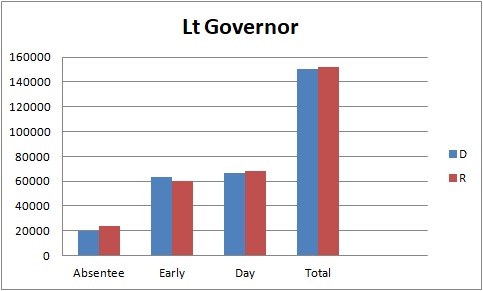
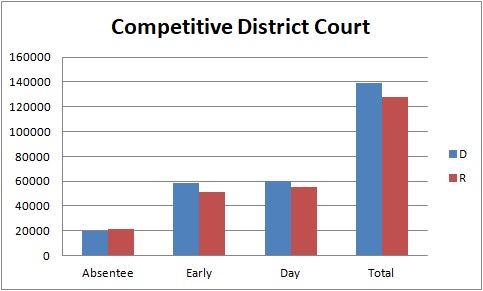
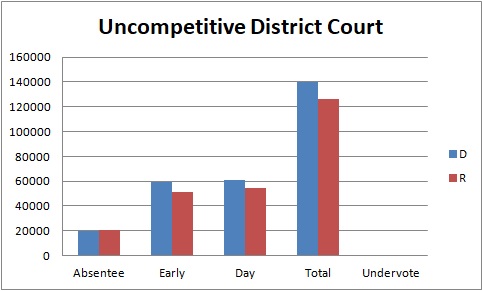
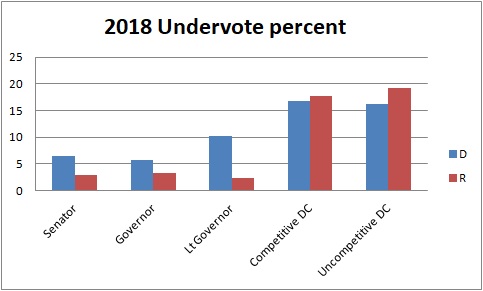
2014 data:
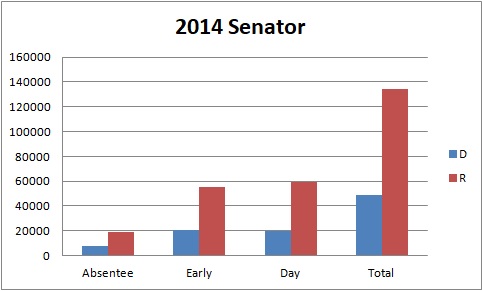
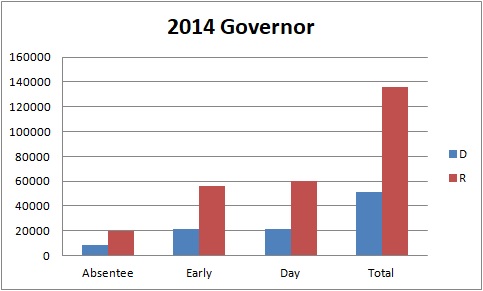
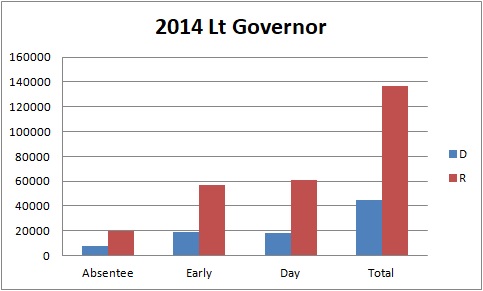
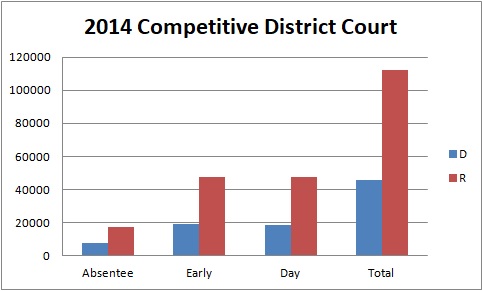
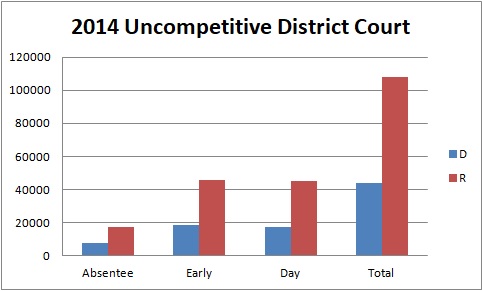
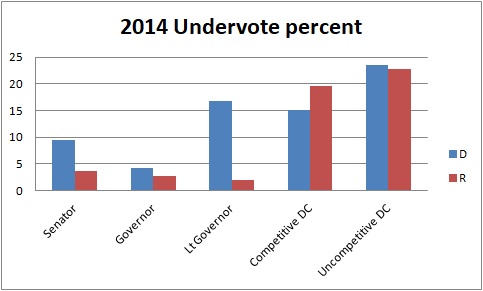
Remember, take the democrat Lt. Governor value with a grain of salt as it was uncontested in 2014.
2018 Key Data Points
While the increase in democrat early voting has received most of the attention what seems to be most striking is the Lt. Governor race had a higher republican vote total than the democrat vote total. This is an anomaly, and suggests that the call for democrats to vote in the republican primary to vote against Patrick had some degree of impact. This also may have had an impact on the democrat side of the aisle in the 189th district court race, as it the final result 50/49%. Let that be a caution to anyone who considers voting in the “opposition’s” primary.
The undervote incidence should be a significant concern for the GOP. Although the GOP top of the ballot had a lower undervote than the democrats, the bottom of the ballot saw the reverse. Even though it’s not charted above it’s worth noting that the far right of the GOP appeared to be more engaged than the moderates. Davis and Wilson were both smoked in absentee voting suggesting their voters were not as engaged as their opponents.
The Democrat Surge
Regarding the surge in democrat voting there’s likely a combination of issues in play. Some is doubtless the presence of competitive races on the democrat ballot. In 2014 Wendy Davis didn’t have a serious challenger, and the Lt. Governor race was uncontested. This time around they had several competitive races which likely pulled voters into their primary. However, the competitive races can’t account for the huge uptick in democrat voting.
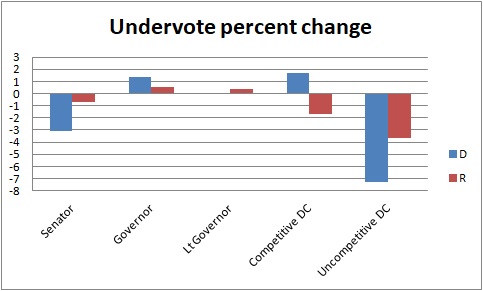
What should be grave concern for the GOP is the relative change in engagement levels. In the chart above, the lower the value the more engaged the voters. It’s tempting to throw out the democrat governor race value since, for primary purposes, Wendy Davis achieved “rock star” status with the pink tennis shoe filibuster, and was an overwhelming favorite in the primary. That leaves senator and the two district court races as a more accurate reflection of democratic voter engagement levels. Absentee voting also suggests the democrats are more engaged than before. Although the GOP saw more absentee ballots cast the democrats closed the gap.
Strong Headwinds for November
Chairman Simpson should make energizing GOP voters his most important task from now until November’s election. While the criticism against him regarding engagement verifies at the ballot box the data suggests that the infighting is what’s turning voters off. The GOP top of the ballot didn’t have seriously contested races so the meaningful data is the competitive/uncompetitive district court races. There, the competitive race saw much less undervote change than the uncompetitive race.
Although repairing the damage from the primaries is needed the reversal in the undervote suggests that the bickering has turned voters off, and figuring out a way to reengage these voters is necessary to not having another blue tide election in the county. The criticism and infighting are going to continue. This leaves Simpson in a no-win situation. The lack of statesmanship has lead to this problem, and he needs to do what he sees best and not worry about what others think. These trying times are a great opportunity for him to say damn the torpedoes and act boldly to forge a way forward against the impending blue tide.